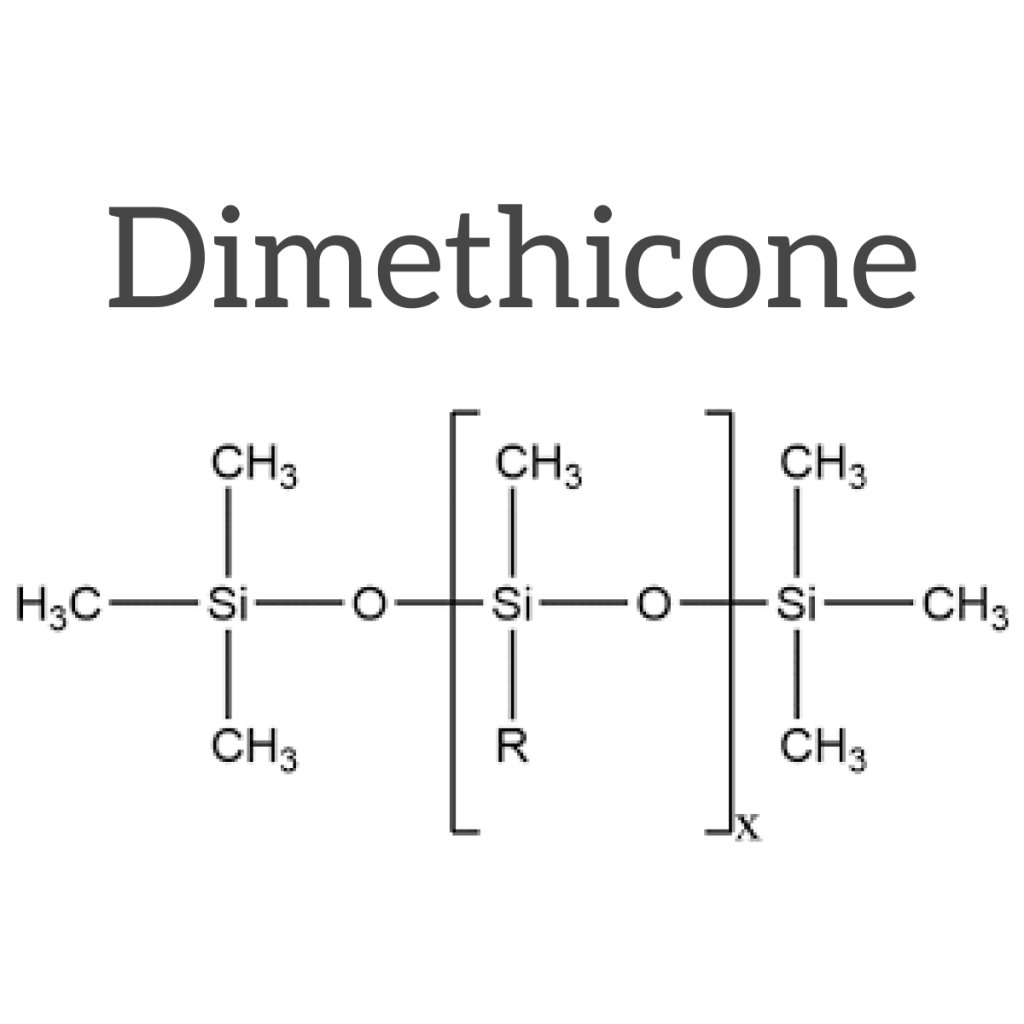Discover the truth about dimethicone in skincare and gain a comprehensive understanding of its benefits and potential drawbacks.
The Truth About Dimethicone in Skincare: What You Need to Know
Forget diamonds – dimethicone is a skincare lover’s best friend! This humble silicone has been quietly revolutionizing the beauty industry, leaving skin smoother, more hydrated, and happier than ever before. But what exactly is dimethicone, and why does it have such a loyal fanbase? Strap yourselves in, skincare enthusiasts, as we uncover the truth about dimethicone and reveal the secrets to its skincare superpowers.

Understanding Dimethicone: What You Need to Know
At first glance, dimethicone may sound like some sort of mystical potion concocted in a wizard’s laboratory, but fear not, it’s actually just a type of silicone. Yes, that’s right – the stuff that makes your phone feel oh-so-slippy. But don’t go rubbing your iPhone on your face just yet, because not all silicones are created equal.
Dimethicone is a silicone-based polymer that’s commonly used in skincare and cosmetic products. Unlike its clingy silicone counterparts, dimethicone sits lightly on your skin, creating a silky-smooth barrier. But what does this mean for your skin, you ask? Oh, only a plethora of benefits waiting to be unleashed!
Did you know that dimethicone is not only used in skincare products, but also in haircare? That’s right! This versatile silicone can be found in shampoos, conditioners, and styling products. It helps to create a protective layer around each strand of hair, reducing frizz and leaving your locks looking sleek and shiny.
Exploring the Benefits of Dimethicone in Skincare
Prepare to have your mind blown – dimethicone doesn’t just make your skin feel velvety soft, it also locks in moisture like a fortress! This mighty silicone creates a protective shield, preventing water loss and keeping your skin hydrated for longer.
But that’s not all! Dimethicone is also known for its ability to improve the texture of skincare products. It helps to create a smooth and spreadable formula, making it easier for you to apply your favorite creams and lotions. No more struggling with thick, sticky products!
And the best part? Dimethicone is non-comedogenic, meaning it won’t clog your pores and cause those dreaded breakouts. So, bid adieu to dry, flaky patches and embrace the smooth, plump skin of your dreams.
Dimethicone: The Secret to Smooth and Hydrated Skin
Say goodbye to rough, dull skin, because dimethicone is here to save the day! Its smoothing properties create a flawless canvas by blurring imperfections and filling in fine lines. Hello, airbrushed beauty!
But that’s not all – dimethicone also plays well with other skincare ingredients. It forms a protective barrier, allowing active ingredients to penetrate deeper into your skin and work their magic. Talk about a team player!
Have you ever wondered why some skincare products feel heavy and greasy on your skin? Well, dimethicone is the answer! This lightweight silicone helps to create a mattifying effect, leaving your skin looking fresh and shine-free. It’s like having your own personal makeup artist in a bottle!
Debunking Myths About Dimethicone and Breakouts
Now, let’s address the elephant in the room – can dimethicone really cause breakouts? The answer may shock you. *cue dramatic pause* It’s a big fat NO!
Dimethicone has been unfairly blamed for acne, but the truth is, this silicone superhero is non-comedogenic and won’t clog your pores. It’s time to put those rumors to rest and embrace dimethicone as the skincare savior it truly is.
The Science Behind the Efficacy of Dimethicone
But wait, there’s more! Dimethicone isn’t just a buzzword in the beauty world – it’s backed by science too. Studies have shown that this magical silicone reduces transepidermal water loss and improves skin hydration levels. It’s like a mini spa treatment for your face!
So next time you spot dimethicone on the ingredient list, take a moment to celebrate. Your skin is about to be treated to a luxurious, hydrating experience like no other.
The Facts About Dimethicone Revealed
Now that we’re well-acquainted with dimethicone’s skincare superpowers, let’s dive a little deeper into the nitty-gritty details. After all, knowledge is power!
Dimethicone is a silicone polymer made up of repeating units of – you guessed it – silicon and oxygen atoms. This creates a flexible, yet resilient structure that glides effortlessly over your skin. It’s like a gentle hug in the form of a skincare ingredient.
But wait, there’s more to silicones than meets the eye. Dimethicone is just one member of the silicone family, and its smaller siblings deserve some love too!
One such sibling is cyclomethicone. This silicone compound has a lower molecular weight compared to dimethicone, making it lighter and more volatile. It evaporates quickly upon application, leaving behind a silky-smooth finish. Cyclomethicone is often used in hair care products, providing a lightweight and non-greasy feel.
Another member of the silicone family is phenyl trimethicone. This silicone derivative offers excellent water resistance, making it a popular choice in sunscreens and long-lasting makeup products. It forms a protective barrier on the skin, preventing moisture loss and keeping your skin hydrated throughout the day.
Now, let’s not forget about amodimethicone. This silicone compound is specially designed for hair care. It has a unique property that allows it to selectively target damaged areas of the hair, providing effective conditioning and repair. Amodimethicone helps to reduce breakage, improve hair manageability, and enhance shine.
As you can see, the silicone family is quite diverse, with each member bringing its own set of benefits to the table. Whether it’s the smoothing effect of dimethicone, the lightweight feel of cyclomethicone, the water resistance of phenyl trimethicone, or the repairing properties of amodimethicone, there’s a silicone for every skincare and hair care need.
Demystifying Silicones in Skincare
When it comes to skincare, there’s always something new to learn. Today, we’re diving deep into the world of silicones – those mysterious ingredients that often spark debates among skincare enthusiasts. But fear not, we’re here to demystify silicones and shed light on their role in your skincare routine.
At this point, you might be wondering if dimethicone is the only silicone worth adding to your skincare routine. Fear not, for we have silicones in all shapes and sizes, each with its own unique benefits.
Unveiling the Power of Small Silicones in Beauty Products
While dimethicone may be the star of the show, smaller silicones steal the spotlight when it comes to lightweight formulas. These tiny molecules work their magic by providing an invisible shield that protects your skin from environmental stressors. Think of them as your skin’s very own bodyguard, always on duty.
But what exactly are these small silicones? Well, they go by many names – cyclopentasiloxane, cyclohexasiloxane, and cyclomethicone, to name a few. These silicones are lightweight and easily spreadable, making them ideal for products like serums, primers, and moisturizers. They create a smooth and silky texture that glides effortlessly onto your skin, leaving behind a velvety finish.
But their benefits don’t stop there. These small silicones also act as a barrier, preventing water loss and keeping your skin hydrated throughout the day. So not only do they protect your skin from external aggressors, but they also lock in moisture, leaving your skin plump and radiant.
Silicone Polymers: The Building Blocks of Skincare Formulas
It’s time to give credit where credit is due – silicone polymers are the unsung heroes of skincare formulations. These larger silicones create a film over your skin, locking in moisture and keeping your skin barrier intact. They’re like the superheroes that save your skin from the harsh elements of the outside world.
But how do these silicone polymers work their magic? Well, imagine a mesh-like structure that forms a protective layer on your skin’s surface. This layer not only prevents moisture loss but also acts as a shield against pollution, UV rays, and other environmental stressors. It’s like having a second skin that keeps all the good stuff in and all the bad stuff out.
Furthermore, silicone polymers have a unique ability to enhance the spreadability of skincare products. They help other ingredients glide smoothly over your skin, ensuring even application and maximum efficacy. So, when you apply that luxurious face cream or serum, thank the silicone polymers for their contribution to the product’s texture and performance.

Functional Silicones: How They Enhance the Performance of Skincare Products
Last but not least, we have functional silicones – the multitaskers of the skincare world. These silicones work behind the scenes, improving the texture, spreadability, and longevity of your favorite products. They’re the unsung heroes that make your skincare routine seamless and effortless.
Functional silicones come in various forms, such as dimethiconol, phenyl trimethicone, and trimethylsiloxysilicate. These silicones have unique properties that contribute to the overall performance of skincare products. For example, dimethiconol imparts a silky feel and helps reduce the appearance of fine lines and wrinkles. Phenyl trimethicone adds shine and gloss to hair and skin, giving you that coveted healthy glow. And trimethylsiloxysilicate acts as a film-former, providing long-lasting wear for makeup products.
But what about the concerns surrounding silicones? Some claim that silicones clog pores and cause breakouts. While it’s true that certain individuals may be more prone to silicones causing congestion, it’s important to note that not all silicones are created equal. The smaller silicones we mentioned earlier, like cyclopentasiloxane, are less likely to cause issues for most people. Additionally, proper cleansing and exfoliation can help prevent any potential buildup.
So, the next time someone says silicones are bad for your skin, drop some knowledge bombs on them. Armed with your newfound understanding of dimethicone and its companions, you’ll be one step closer to achieving the flawless complexion of your dreams.






[…] polymer that has gained popularity in the beauty industry. But what exactly is PEG/PPG-18/18 Dimethicone and why is it considered a skincare […]
[…] that we’ve covered the science, let’s explore the numerous ways Peg-10 Dimethicone is utilized in skincare products. From moisturizers to serums and everything in between, this versatile ingredient can be […]